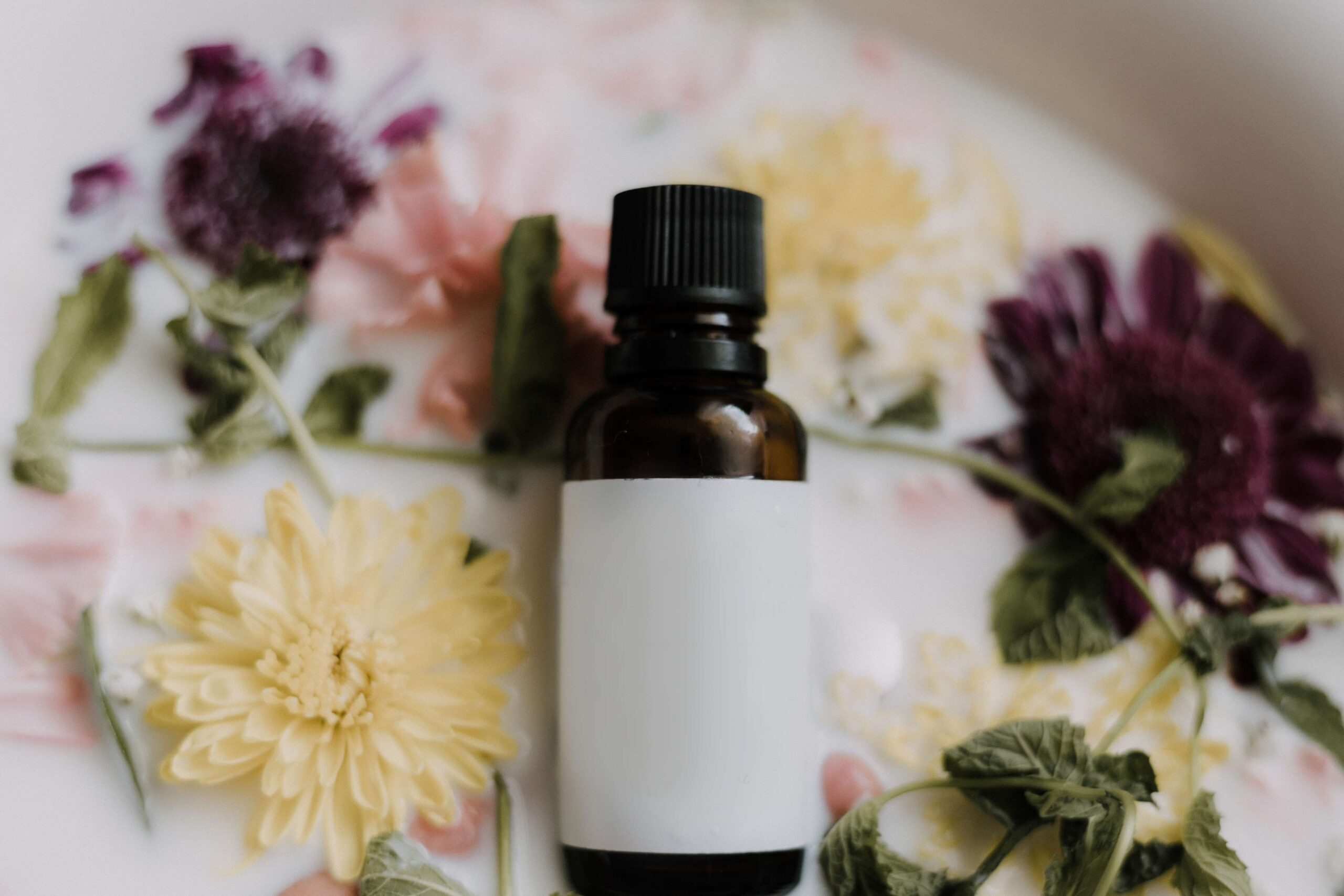*This post may contain affiliate links for which I earn commissions.*
Photo by Priscilla du Preez on unsplash.com
As a woman who is going through menopause, I understand firsthand the myriad of symptoms that can accompany this significant phase of life. The hot flashes that seem to arrive unannounced, the mood swings that leave us feeling like strangers to ourselves, and the struggles with insomnia that make each night a restless battle. And let’s not forget the brain fog! It is a transformative time, one that signals the end of our reproductive years, but it doesn’t have to be filled with discomfort and reliance on hormone replacement therapy (HRT) – and yes, you can come out of it feeling transformed and living a thriving life.
Hormone replacement therapy has long been the go-to treatment for menopausal symptoms. However, concerns about its potential risks, such as an increased risk of certain cancers and cardiovascular issues, have led some women to seek effective and safer alternatives. This is where natural remedies come into play, offering a holistic approach to managing menopausal symptoms without the potential drawbacks associated with synthetic hormones.
One of the key reasons why natural remedies have gained popularity is their ability to address menopausal symptoms by harnessing the power of nature’s bounty. These remedies work in harmony with our bodies, providing relief by nourishing and supporting our natural systems. Whether it’s through dietary changes, herbal supplements, or mind-body techniques, these alternatives can offer a gentler, more sustainable path towards symptom management.
A balanced diet is a foundational aspect of natural remedies for menopausal symptoms. Including foods rich in phytoestrogens, such as soy, flaxseeds, and lentils, can help alleviate hot flashes and mood swings. These plant-based compounds mimic the effects of estrogen in the body, providing a natural boost to hormone balance. Additionally, prioritizing calcium-rich foods supports bone health, which is crucial during menopause due to the increased risk of osteoporosis.
Regular exercise also plays a vital role in managing menopausal symptoms. Engaging in activities like walking, swimming, or yoga can help reduce the frequency and intensity of hot flashes, improve mood, and boost overall well-being. Exercise is not only beneficial for physical health but also provides a much-needed outlet for stress relief and mental clarity, making it an integral part of a holistic approach to menopause.
In my own journey through menopause, I discovered the power of herbal remedies as effective alternatives to HRT. Herbs like black cohosh, red clover, evening primrose oil, and the benefits of wild yam have been used for centuries to address menopausal symptoms. These natural remedies contain compounds that can mimic estrogen in the body, providing a natural boost to hormone balance. Wild yam, for instance, contains diosgenin, which has been associated with estrogen-like effects. However, it’s important to note that individual responses to herbal remedies can vary. Also, some herbs are not suitable for those on certain medications so it’s always advisable to consult with a healthcare professional before incorporating them into your routine.
By exploring natural remedies for menopausal symptoms, we open ourselves to a world of possibilities beyond hormone replacement therapy. In the following sections, I will delve deeper into various strategies and remedies that can help manage menopausal symptoms naturally. From mind-body techniques to essential oils, and from lifestyle changes to supportive supplements, there are numerous alternatives available to support us through this transformative phase of life.
Mind and Body
Mind-body techniques are an invaluable resource for managing menopausal symptoms naturally. Techniques such as meditation, deep breathing exercises, and yoga have been shown to reduce stress, anxiety, and promote relaxation. Stress is one of the biggest problems for menopausal women. It can cause a myriad of symptoms and could eventually lead to disease. My recommendation is if can do only one thing, make sure you address your stress levels in some way. My go to is yoga. Incorporating these practices into daily life can have a positive impact on overall well-being, helping to alleviate the emotional and physical challenges that often accompany menopause.
In addition to dietary adjustments and mind-body practices, acupuncture has emerged as a promising natural remedy for menopausal symptoms. This ancient Chinese practice involves the insertion of thin needles into specific points on the body. Acupuncture has shown potential in reducing the frequency and severity of hot flashes and improving sleep quality because it stimulates the release of endorphins, which can help regulate hormone levels and promote a sense of calm. I tired acupuncture but it wasn’t effective for me but many other women swear by it. I have also tried reflexology. I had mixed results with this. At first it worked very well. The hot flushes decreased (hooray) and I even began to have periods again. However, I came down with covid and everything went back to how it was before; intense hot flushes, insomnia, brain fog and so on though I’m unsure why. Since then, it hasn’t worked as well as it did previously. One thing it has continued to help with is my stress levels.
Supporting our bodies with essential nutrients is crucial during menopause. Ensuring an adequate intake of vitamin D and calcium is essential for maintaining bone health. Vitamin D can be obtained through sunlight exposure and fortified foods, while calcium-rich foods and supplements can contribute to maintaining strong bones. It’s important to speak with a healthcare professional to determine the appropriate supplementation and dosage for your specific needs.
Lifestyle changes can also make a significant difference in managing menopausal symptoms. Simple adjustments such as wearing layered clothing to manage hot flashes, try maintaining a consistent sleep routine, and minimizing the consumption of alcohol and quitting smoking can greatly improve the overall experience of menopause.
Supportive supplements can be considered in conjunction with natural remedies. Omega-3 fatty acids, vitamin E, and evening primrose oil are among the supplements that have shown promise in managing specific menopausal symptoms. However, it’s essential to consult with a healthcare professional before starting any supplements to ensure their safety and appropriate usage.
Essential Oils
Essential oils have gained recognition as a natural remedy for menopausal symptoms. Lavender, clary sage, and peppermint are commonly used oils that can help reduce hot flashes, promote relaxation, and improve sleep quality. It’s important to note that essential oils should be used with caution and properly diluted before use. Here are 3 oil recipes to try.
Recipe 1: Cooling Citrus Mist Ingredients:
- 5 drops of peppermint essential oil
- 5 drops of grapefruit essential oil
- 3 drops of clary sage essential oil
- 2 ounces of distilled water
- Spray bottle
Instructions:
- In a spray bottle, combine the peppermint, grapefruit, and clary sage essential oils.
- Add the distilled water to the spray bottle and shake well to blend the oils with the water.
- To use, shake the bottle and lightly mist the air around you when experiencing hot flashes or feeling overheated.
- You can also spray a little on a handkerchief and keep it with you for a quick refreshing boost throughout the day.
Recipe 2: Calming Lavender Body Oil Ingredients:
- 10 drops of lavender essential oil
- 5 drops of geranium essential oil
- 2 ounces of carrier oil (such as sweet almond oil or jojoba oil)
- Glass bottle with a dropper
Instructions:
- In a glass bottle, combine the lavender and geranium essential oils.
- Add the carrier oil to the bottle and secure the dropper lid.
- Gently shake the bottle to mix the oils together.
- To use, apply a few drops of the body oil to your palms and massage it into your skin, focusing on areas prone to dryness or discomfort. This can help soothe and nourish your skin while promoting a sense of relaxation.
Recipe 3: Relaxing Bedtime Blend Ingredients:
- 7 drops of chamomile essential oil
- 5 drops of clary sage essential oil
- 3 drops of bergamot essential oil
- 2 drops of ylang-ylang essential oil
- Diffuser or cotton ball
Instructions:
- Fill your diffuser with water according to the manufacturer’s instructions.
- Add the chamomile, clary sage, bergamot, and ylang-ylang essential oils to the diffuser.
- Turn on the diffuser and let the soothing aroma fill the room before bedtime. Breathe deeply and allow the calming scents to help relax your mind and body.
- If you don’t have a diffuser, you can add a few drops of the blend to a cotton ball and place it near your pillow to enjoy the aromatherapy benefits.
Remember to always dilute essential oils properly and perform a patch test before applying them to your skin to ensure compatibility and avoid any potential sensitivities or allergic reactions.
Natural remedies provide effective alternatives to hormone replacement therapy for managing menopausal symptoms. By adopting a holistic approach that includes dietary changes, mind-body techniques, herbal remedies, and lifestyle modifications, women can navigate this transformative phase with greater ease and well-being. Remember, each woman’s experience with menopause is unique, so it’s crucial to explore different options and find what works best for your individual needs. If you do one thing, start with reducing your stress levels.

